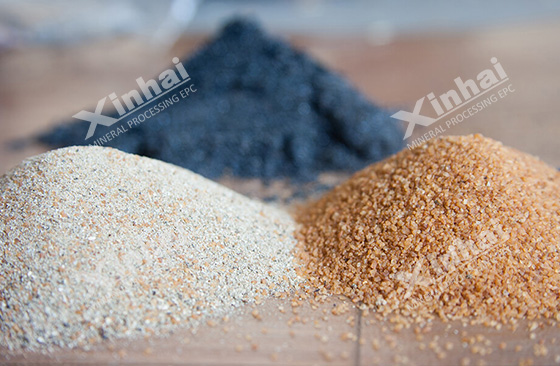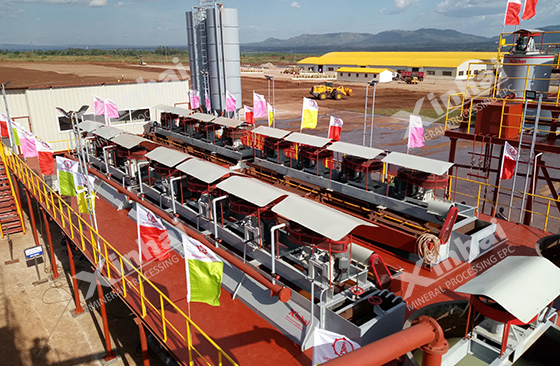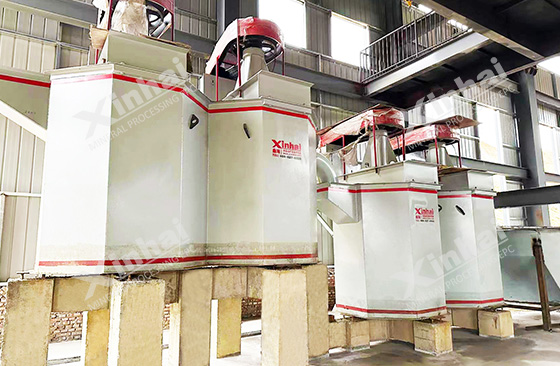
Quartz sand, also known as silica sand, is widely used in various fields such as glass manufacturing, casting, ceramics and water treatment. However, impurities in quartz sand can have a significant impact on its quality and suitability for a specific application. Therefore, it is crucial to use effective methods to remove impurities and improve the purity of quartz sand. This article will introduce different methods of removing impurities from quartz sand from the aspects of physics and chemistry.

1. With the help of gravity separation technology and equipment, such as spiral chute, shaker and jig, quartz is separated from heavier impurities relying on the difference in particle density. By utilizing gravity, these methods effectively remove heavy minerals and coarse impurities.
2. With the help of magnetic separation technology, the magnetic properties of magnetic impurities (such as iron oxide) are used to separate them from quartz sand. High-intensity magnetic separators and electromagnetic magnetic separators are often used to achieve efficient quartz sand impurity removal.
3. Flotation technology is also commonly used in the impurity removal process of quartz sand. This technology mainly relies on the difference in surface floatability between quartz particles and impurities. By using surfactants and air bubbles, quartz can be selectively levitated while impurities remain in the aqueous phase.

1. Use acid leaching to remove impurities in quartz sand. The main types of impurities removed are iron oxide, clay minerals and other acid-soluble substances. The main acids used are hydrochloric acid or sulfuric acid.
2. Use alkali method to remove impurities in quartz sand, mainly using alkaline solutions such as sodium hydroxide to remove clay minerals and organic impurities in quartz sand. These impurities will react chemically with the alkaline solution and separate from the quartz sand.
3. The heat treatment method is used to remove impurities in quartz sand, which requires heating. After heating the quartz sand to the required high temperature, volatile impurities can be removed. Heat treatment can convert certain impurities into harmless forms. The types of impurities removed by this method are organic and soluble impurities.
1. High-pressure water washing and impurity removal method: High-pressure water washing strips and removes impurities by impacting quartz sand with high-pressure water jets. This method effectively removes surface coverings, clay particles and fine impurities.
2. Electrostatic separation and impurity removal method: Electrostatic separation uses the conductivity difference between quartz and impurities to separate. By applying an electric field, particles can be selectively charged and separated based on their conductive properties. This method can be used in the selection process of quartz sand.
3. Ultrasonic treatment to remove impurities: Ultrasonic treatment uses high-frequency sound waves to excite quartz sand and peel off impurities. This method effectively removes surface coatings, fine particles and stubborn impurities.

Removing impurities from quartz sand is critical to ensuring its quality and suitability for various industrial applications. The above mainly introduces the physical, chemical and other impurity removal methods of quartz sand. In actual production, there are other impurity removal methods based on mineral characteristics. Therefore, when selecting a quartz sand impurity removal process, the mineral processing plant should understand the characteristics of its own quartz sand. The choice of impurity removal method depends on factors such as the nature of the impurities, the required purity level and economic feasibility. Often, multiple methods are combined to achieve the desired result. Xinhai Mining recommends conducting beneficiation tests to determine the appropriate quartz sand beneficiation and purification process.
To find out more about our products and solutions, please fill out the form below and one of our experts will get back to you shortly.